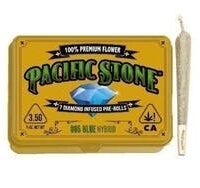Delivered the order in a well-packed box and using bubble wrap. The parcel was given to me at my address from hand to hand.
Sale Products
Robert R.
VR Guy
Quality is on top! Made an order in the evening, sent in the morning! On Thursday ordered, on Monday received. The packaging is high-quality, all the goods were delivered intact.
Arnold G.
Humble
The advantages of ordering goods through this site are obvious. It is fast and convenient, all products are located in catalogs. Usually, 10 minutes is enough for me to place an order.
Emanuel L.
Doctor
I like high quality and tasty (if you can say so) hemp. I choose varieties that soothe, relax, the smell spreads throughout the house and it’s cool! This is the best marijuana store that I know and always order only here.
Alisa S.
Your queen
Here are the best prices and a very large assortment. The site is intuitive for buyers there is the possibility of sorting by category. For each product, there is detailed information that describes its taste and effect.
Ramiro F.
Party-goer
My girlfriend had a birthday and I wanted to give her a special gift. The site has a detailed description of each variety and recommendations on when to smoke. I think that next time we will choose together with her)
Mohammad A.
Buddy
Quickly delivered, and some goods are cheaper than in other stores. The quality of marijuana is on top, everything is exactly as in the description.
Sam P.
Dreamer
We ordered marijuana at this attractive price from this online store. Delivery was organized competently. Received order without long expectations.
Eliza S.
Beauty queen
Indica
It has strong and large leaves in the pot, squat shape and relaxing action.
Sativa
Tall bushes from a dispensary with thin leaves and a psycho stimulating medical effect.
Hybrids
Hybrid combinations report the percentage of the main genotypes in the product, according to which we can conclude about the quality of the hemp.
Our online store has a flexible system of discounts, and each order is supplemented with bonuses. We also regularly have interesting promotions and offers that allow you to buy marijuana at an even better price. You can choose any delivery method convenient for you or pick up the order yourself.
Welcome to MJ420 – Your Premier Cannabis Store in San Francisco!
At MJ420, we are dedicated to providing our customers with the finest cannabis products in San Francisco. Whether you are a seasoned cannabis connoisseur or new to the world of cannabis, our knowledgeable and friendly staff is here to guide you on your cannabis journey.
Located in the heart of San Francisco, our cannabis store offers a wide selection of high-quality cannabis products to meet the diverse needs of our customers. From premium flower to top-shelf concentrates, edibles, tinctures, and more, we have something for everyone. Our products are sourced from trusted local farmers and reputable cannabis brands, ensuring that you are getting the best cannabis products available.
At MJ420, we prioritize the health and safety of our customers. Our cannabis products undergo rigorous testing to ensure that they meet the highest standards for purity, potency, and quality. We are committed to providing safe and reliable cannabis products that you can trust.
Our experienced staff is here to assist you in finding the perfect cannabis product to suit your needs. Whether you are looking for a relaxing indica strain to unwind after a long day, an energizing sativa to boost your creativity, or a balanced hybrid for a well-rounded experience, we have something for every preference. Our staff is well-versed in the nuances of cannabis and can provide personalized recommendations based on your desired effects, preferred consumption method, and experience level.
At MJ420, we believe in providing exceptional customer service. Our friendly and knowledgeable staff is always available to answer your questions, provide education on cannabis, and offer guidance on dosage and consumption methods. We are committed to creating a welcoming and inclusive environment where you can feel comfortable exploring the world of cannabis.
In addition to our wide selection of cannabis products, we also carry a variety of cannabis accessories to enhance your cannabis experience. From vaporizers and glassware to rolling papers and grinders, we have everything you need to enjoy your cannabis in style. Our team can also provide guidance on the proper use and care of cannabis accessories to ensure that you get the most out of your cannabis products.
Convenience is important to us, which is why we offer online ordering for pickup or delivery. Simply browse our online menu, place your order, and choose whether you want to pick it up at our store or have it delivered right to your door. Our online ordering system is easy to use and provides a seamless and convenient way to shop for cannabis products.
At MJ420, we are proud to be a part of the vibrant cannabis community in San Francisco. We are committed to supporting local initiatives and giving back to our community. We believe in the power of cannabis to positively impact lives and are dedicated to promoting responsible cannabis use and education.
Thank you for choosing MJ420 as your trusted cannabis store in San Francisco. We look forward to serving you and providing you with the finest cannabis products and exceptional customer service. Visit us today and experience the MJ420 difference!






























